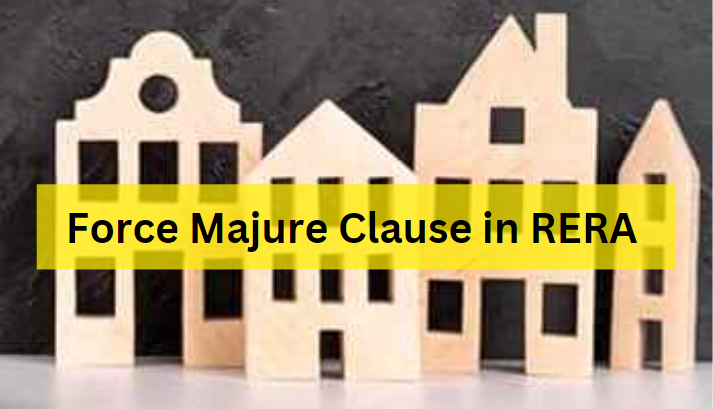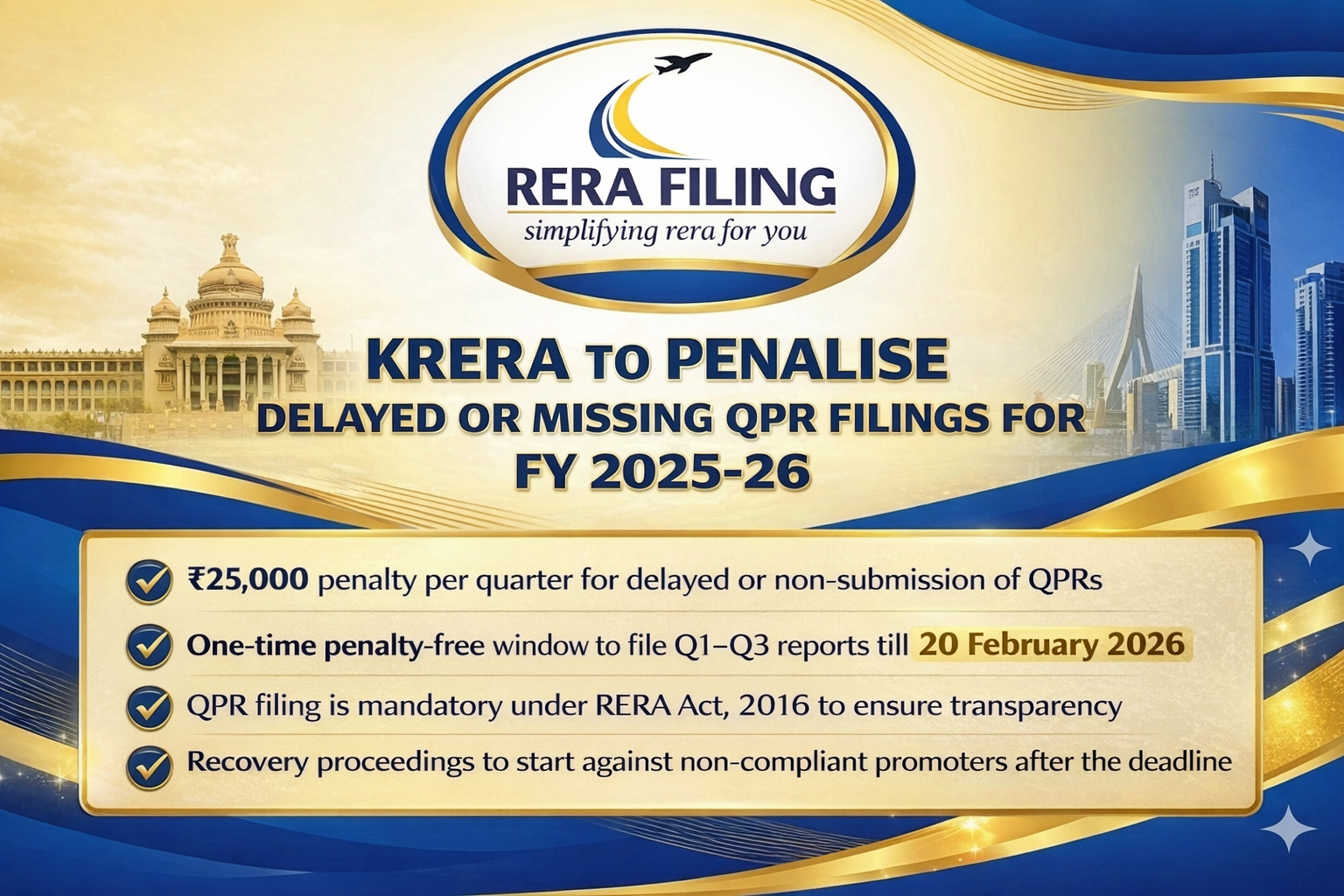
- General
- Monday 27th February 2023
- Author:
Highlights
-
In the event of a Force Majeure event, section-6 of the Real Estate (Regulation and Development) Act, 2016 (RERA Act) discusses the force majeure condition and provides a detailed description of how the registration granted by the Real Estate Regulatory Authority (RERA) could be extended if a promoter applies for the same purpose.
In French, the term Force Majeure means "superior force." According to Black's Law Dictionary, force majeure is "an event or effect that cannot be predicted, managed, or avoided." This term, according to the law, basically refers to unforeseeable circumstances that render any project commercially impossible and prevent people from performing their contractual obligations.
The Indian Contract Act of 1872 contains a list of situations in which the 'Doctrine of frustration' may excuse performance, but this is rarely in the best interests of the investor because the situations mentioned are general and do not apply to the case at hand. The Force Majeure Clause was created to compensate for this shortcoming. The Force Majeure Clause modifies parties' contractual obligations in the event of natural or extraordinary events such as a cyclone, natural fire/wildfire, flood, war, earthquake, tsunami, or drought.
In the event of a Force Majeure event, section-6 of the Real Estate (Regulation and Development) Act, 2016 (RERA Act) discusses the force majeure condition and provides a detailed description of how the registration granted by the Real Estate Regulatory Authority (RERA) could be extended if a promoter applies for the same purpose.
In May 2020, the government announced a nine-month extension of the registration period, as well as a complete waiver of interest for late possession handover. The ministry also provided a six-month extension of the registration and completion date for all real estate projects registered under the RERA Act that were set to expire on March 25, 2020.
This could include things like whether, in the event of an emergency, a meeting can be cancelled without incurring any liabilities in the form of cancellation fees, or whether the meeting can continue in the event of low attendance. Once these factors are clarified and well understood, this will emerge as a critical tool for mitigating risks in difficult situations. A carefully negotiated Force majeure clause will give you power and flexibility during emergencies, allowing you to handle the situation in a way that minimises loss for all parties involved.
The COVID-19 has left the entire world reeling, and India is no exception. On May 13, 2020, the Indian Ministry of Housing and Urban Affairs advised all states and UTs to invoke the force majeure clause by extending the registration period for all real estate projects by six months. The developer will benefit from invoking the Force Majeure clause under the Indian Contract Act in the following ways:
- Automatically extending the registration period by six months, with the option to extend by an additional three months at the discretion of the regulatory authority.
- Fee waiver for this period
- A time limit to comply will be set at the same time as the force majeure
- The Force Majeure period will be treated as a moratorium in order to calculate interest for the project's delayed completion and possession. This is now being extended to homebuyers.
- Possession dates for properties mentioned in registered agreements for sale and new registrations of agreements for sale are extended.
- Extension of deadlines for certain other compliances, such as title transfer
The RERA 2016 Act only mentions extending registration due to Force Majeure, but all other entitlements resulting from this must be specifically drafted by the State Regulatory Authorities.
Copyright © 2026 RERA Filing. All rights reserved.

 Rera Act
Rera Act
 Maharashtra
Maharashtra
 Karnataka
Karnataka
 Telangana
Telangana
 Andhra Pradesh
Andhra Pradesh
 Delhi
Delhi
 Uttar Pradesh
Uttar Pradesh
 Haryana
Haryana
 Gujarat
Gujarat
 Bihar
Bihar









